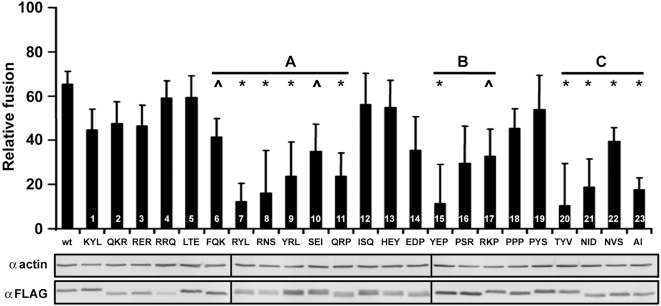Figure 8. Multiple regions of the p14 endodomain affect trans-enhancing activity.
Every amino acid of the p14 endodomain, in groups of three consecutive residues (indicated along the x-axis), was substituted with alanine. These endodomain alanine mutants (numbered 1–23) were co-expressed with authentic p14 in co-transfected QM5 cells, and the relative fusion level±S.E. (n = 4) was determined as described in Figure 1C. Three regions, “A”, “B”, “C”, where alanine substitutions resulted in a more pronounced inhibitory effect on the trans-potentiation activity of the endodomain, are indicated on the graph. p14 constructs displaying a significant decrease (p<0.05) in fusion enhancement activity (*), and those approaching (p<0.06) statistical significance (∧), are indicated. Western blots with anti-FLAG antibodies were used to assess expression levels of the various FLAG-tagged endodomain mutants, using actin blots as a loading control.

